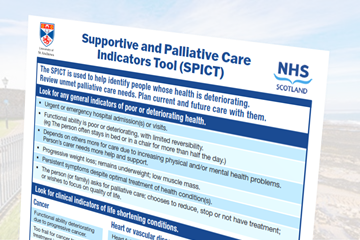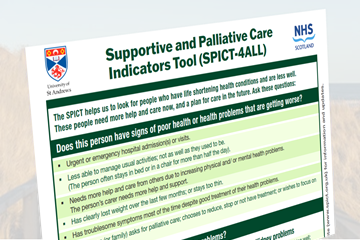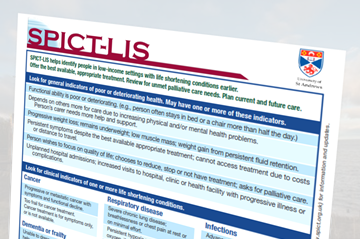SPICT
SPICT helps identify people with deteriorating health due to life shortening conditions so they can be offered early palliative care and future care planning.
SPICT International Programme
SPICT (Supportive & Palliative Care Indicators Tool) helps us identify people with life shortening conditions for palliative care and future care planning.
Palliative care helps people live as well as possible, often over years not just a few months. Palliative care is integrated with the best available treatments of underlying health conditions. It focuses on what matters to an individual and includes people important to them.
The SPICT programme is an international community of colleagues from around the world who work collaboratively to promote and improve palliative care with SPICT.
All SPICT versions and Using SPICT guides are free to access. Use them when caring for people and families, and in your teaching or research. Please let us know if you publish your work or study.
SPICT versions

Main version of SPICT and links to translations.

Plain language version of SPICT and links to translations; SPICT-4ALL in prisons

SPICT adapted for lower income settings or countries
We have a growing number of translations and adaptions of all the versions. If you are interested in developing one, please contact us.
The first concept version of SPICT was published in 2010 by Kirsty Boyd and Scott Murray, Primary Palliative Care Research Group, University of Edinburgh.
The SPICT international programme followed. It moved to St Andrews in 2025.
SPICT continues to be used, translated and evaluated in the UK, and around the world.
